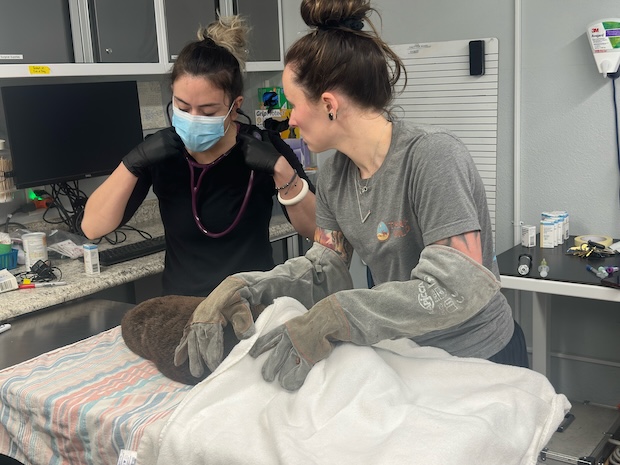Guest column: We need smarter tools to protect children online
Published 7:03 am Sunday, June 1, 2025

- A bill in Congress aims to require parental approval for access to apps for children under 16. (123RF)
The views represented below are my personal opinion based on my own professional experiences.
Every day, I witness firsthand what most parents hope they never have to confront: the dark underbelly of the internet where predators, exploiters, and criminals operate with disturbing sophistication. As someone who has investigated Internet Crimes Against Children cases and a digital forensic examiner for nearly a decade, I’ve worked countless cases involving children who were groomed, exploited, or manipulated through platforms their parents barely understood existed. I’ve learned the internet moves far faster than even the most tech-savvy parents can keep up with, and policy is moving even slower.
Today’s kids are digital natives, growing up in an ecosystem where every app is a new portal to connect and sometimes a new place to be hurt. They know how to mask apps, create dummy accounts and navigate encrypted platforms. And while most parents do their best, their knowledge often pales in comparison to their children’s online ingenuity. Too often, families don’t even know which apps their children are using, let alone how those platforms expose them to everything from explicit content to potential predators. As long as the internet continues to expand and content grows more accessible without any safety rails in place for our children, we will continue to see an annual increase in the number of children sexually exploited online.
That is why we need Congress to act. It has been far too long since any meaningful online youth safety legislation has passed. Parents don’t need more finger-wagging warnings. They need tools. And one of the smartest tools we can give them is centralized parental approval at the app store level.
Instead of navigating different parental control systems across multiple platforms, parents should be able to oversee all app downloads from a single, familiar location. The App Store Accountability Act, a bill introduced in Congress this May, is a promising solution that does just that. By requiring parental approval for children under 16 directly through app stores, we can give parents a one-stop control center to manage their child’s digital access. That is not just more convenient; it is far more effective than attempting to address millions of services and applications on an individual basis.
This approach has other benefits including protecting children’s privacy. It ensures that age verification is done through trusted, secure systems already used by families, not through sketchy popups or by asking children to upload personal information to unknown third parties. When apps receive verified age information from the app store, they can automatically place children in appropriate experiences designed for their age group.
While I am confident this is a step in the right direction: there is no silver bullet. Children who want to get around safety features often find a way. But that does not mean we stop trying as every step towards a safer digital experience for children can make a world of difference. It means we must be smarter, faster, and more proactive in giving families the tools they need to set boundaries and make informed choices. Open, honest conversations about online safety are essential, but they are only part of the solution. We also need laws that reflect the reality of the online world today.
The dangers of the digital world grow and fester in silence. If we don’t talk about them, if we don’t confront them, and if we don’t pass policy to prevent them, we’re leaving children unprotected.
Parents are doing their best. But they shouldn’t have to do it alone.
Congress, it is time to act. Pass smart, forward-thinking legislation like the App Store Accountability Act that will better equip parents and families with the tools they need to keep their kids safe online. The longer we wait the more children become victimized.
Thomas “Lily” Lilienthal serves as digital forensic investigator/instructor. He works for the Deschutes County Sheriff’s Office. This opinion is his own.






